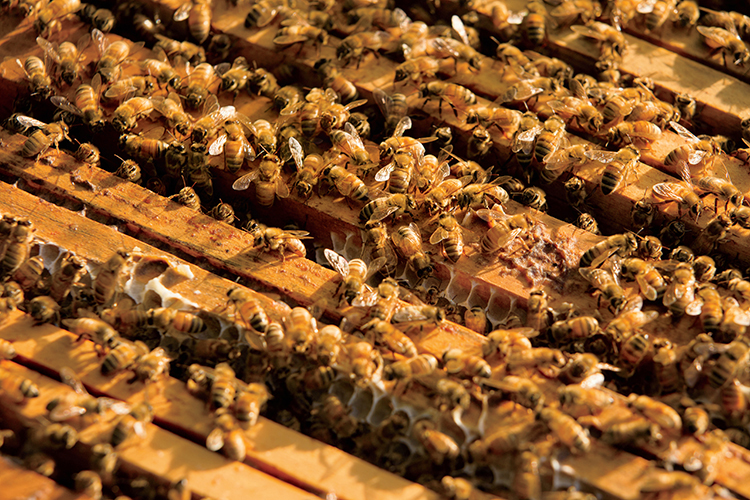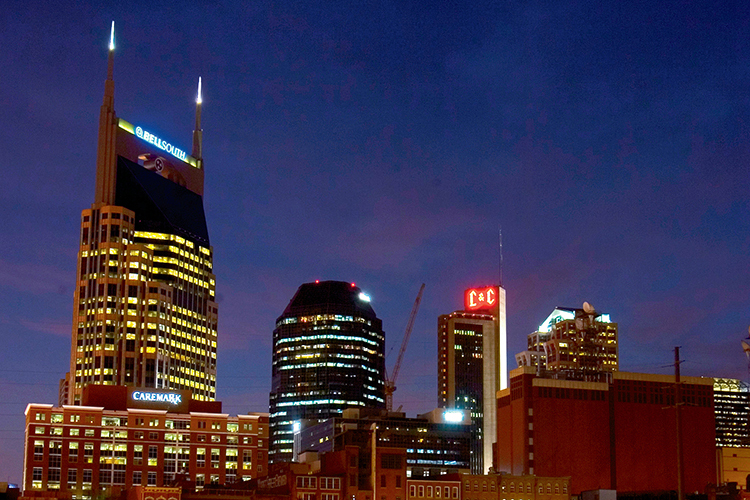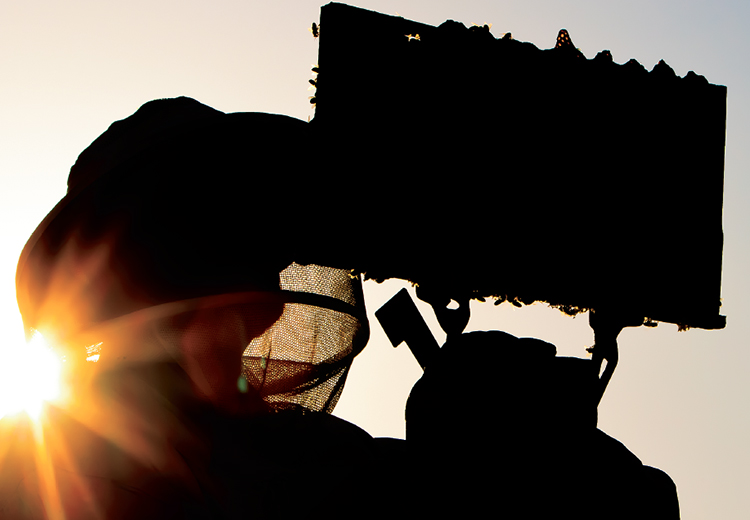Home > Tennessee > Tennessee Farm to Table > Buzzy Business: Urban Beekeeping Flourishes in Tennessee
Buzzy Business: Urban Beekeeping Flourishes in Tennessee
In partnership with: Tennessee Department of Agriculture

As America’s latest “it” city, it’s not uncommon to see new buildings, shopping centers and restaurants popping up throughout downtown Nashville. But as of late, you might see something unexpected buzzing in the heart of urban Music City – honeybees.
“No other pollinators compare to the role honeybees play in pollinating crops,” says Bob Fisher, president of Belmont University in Nashville. “They’re vital for food production but also for creating a beautiful urban atmosphere. That’s what we’re doing here.”
Fisher started beekeeping 35 years ago when he was living in Arkansas. He recently revived his passion with a hive on the green roof of Belmont’s 18,600-square- foot Wedegewood Academic Center.
“I’ve lived in Nashville for 15 years and have always been looking for a spot. I never felt like my neighbors would welcome them,” he says with a chuckle. “The Wedgewood Academic Center is one of several buildings on campus with substantial green roofs. It’s the largest, so it made sense.”
Fisher began tending the hive about a year ago, so he hasn’t produced honey yet – that will come this spring – but says there’s a noticeable difference on campus.
“It’s pretty amazing how often I see them on campus now, and the flowers look more beautiful than ever.”
Since Belmont doesn’t grow crops, Fisher says flowers and plants around campus and surrounding areas are the main beneficiaries of their honeybees. But it’s important for consumers to know how vital the insects are for pollination, especially in light of their recent decline.
“Honeybees are vital for pollinating crops – soybeans, corn, you name it,” Fisher says. “When I was in beekeeping 20 years ago, it was very simple, and a lot of the diseases we are dealing with weren’t around back then. Beekeeping isn’t that complicated to get into, and it can help the overall population.”

Mike Studer, Tennessee state apiarist, says urban beekeeping is on the rise nationwide.
“We have urban beekeepers in every major city in Tennessee, and for the most part, neighbors never know they’re there unless they see the hives,” he says.
Studer adds that raising bees in city environments reduces the number of defensive feral honeybee colonies that can live in walls of buildings.
Ultimately, though there are many benefits, the most important part of urban beekeeping is aiding in the fight against honeybee decline, which is essential for food production.
“The main thing the public needs to understand is that if they want to eat, they have to have honeybees to pollinate their food,” Studer says. “At least 30 percent of what we eat every day is pollinated by honeybees.”
Even Nashville musicians are getting in on the act. Draper and Douglas Mauldin, also known as Southern rock duo The Mauldin Brothers, regularly play on Broadway, but when they’re not jamming out, they raise honeybees in their downtown backyard.
“About six years ago, my allergies got so bad and no pills were working, so I turned to local, raw honey,” Draper Mauldin says. “My brother and I started calling ourselves honey heads. We’d go find a local beekeeper to help with allergies, and then it just made sense to start raising our own.”
Mauldin says they currently have about 20 hives in downtown Nashville and 200 more in their home state of Mississippi.
“Bees make more honey in neighborhoods because there are so many flowers and different nectars,” he says. “We produce roughly 50 to 60 gallons of honey per year.”
Their company, aptly named Honey Heads, provides local honey to Nashville restaurants including Acme, Urban Grub, Peg Leg Porker and more.
“We need more beekeepers,” Mauldin says. “Awareness is key, and it’s important to support your local beekeeper by buying their honey.”




